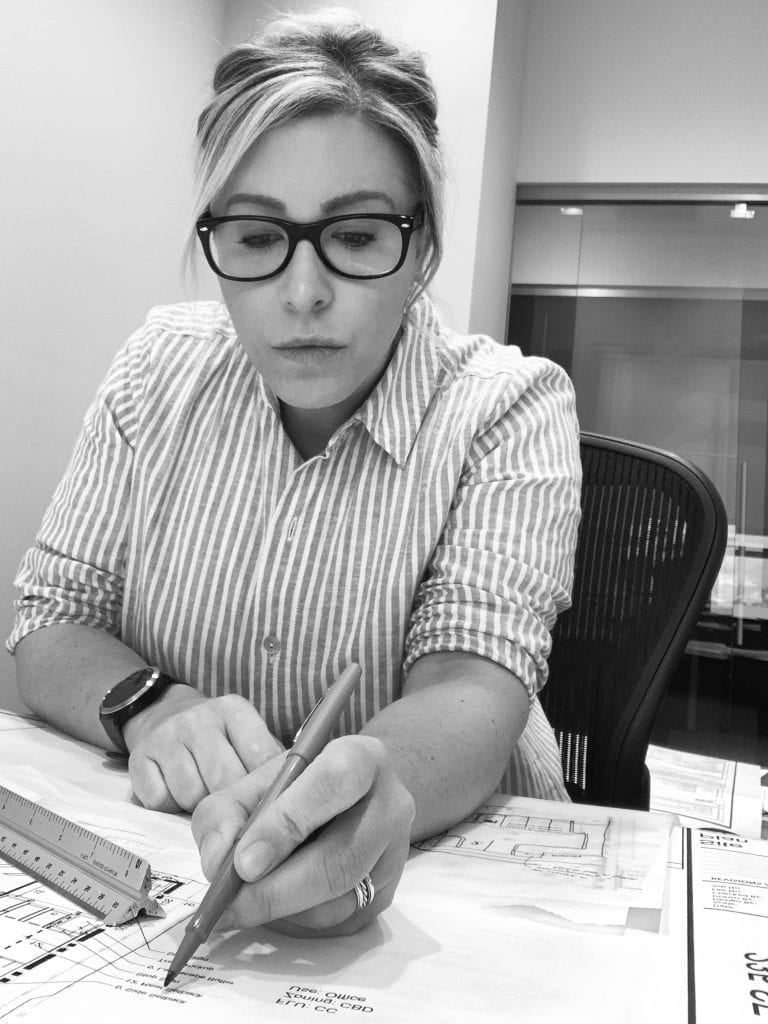
By Kyle Niblett
Each month, DCP will highlight a graduate from the #OneDCP family. To be featured in this space, please email kniblett@dcp.ufl.edu.
Christen Hutton, AICP, is a University of Florida College of Design, Construction and Planning graduate who earned a Bachelor of Arts in Landscape Architecture in 2007 before receiving a Master of Arts in Urban and Regional Planning in 2011. Hutton is currently a project manager at Schmidt Nichols, an award-winning landscape architecture and urban planning firm providing a full service approach to the site development process.
Q & A WITH CHRISTEN HUTTON
Can you tell us about your career journey?
During summer internships for my studies at UF, I discovered my preference to work on large-scale design projects. This macro-scale interest led me to attend graduate school in DCP. Having degrees in both planning and design opened many doors and opportunities upon graduation.
I have been fortunate to practice planning and design in Marin County, Calif., Jackson Hole, Wyo., and currently South Florida—all of which are very beautiful places. I started out in the public sector in a California local municipality, where I was immersed into the complex regulatory world of zoning and land use, before subsequently learning the fine grain mechanics of how they regulate development potential on property. After that initial public sector experience, I transitioned to the private sector, where I have remained since. Practicing in the private sector allows me continuous access to the design process, which is very rewarding when I am eventually able to walk, shop, or dine in places I helped design. I also significantly enjoy the multi-disciplinary aspect of the private sector, as I have learned, and continue to learn, so much from fellow professionals in surveying, engineering, and architecture.
Can you tell us about your day-to-day responsibilities at your current job?
I am responsible for all aspects of managing a variety of commercial, residential, industrial and mixed use development projects. We take a project from the survey and initialize the site and landscape design through multiple iterations until we develop design proposals that meet our client’s program, design preference and budget. Once the architecture, drainage, site plan and landscape design is finalized, we proceed to represent a development application in the respective municipality therein–working closely with architect’s, engineers and municipal staff to comply with applicable zoning regulations. Most of these projects are ultimately reviewed by elected officials at public hearings for final approval or denial, and as a result, politics play a huge role in whether a project gets built, or not.
Additionally, if outdated or antiquated regulations are in place, on behalf of a client, we propose amendments to land use and zoning regulations that are more compatible with Comprehensive Plans and consistent with the surrounding community fabric and form. This allows for the modern development projects to move forward under the newly amended regulations.
What clubs or organizations were you part of during your time at UF?
I participated in Student Planning Association (SPA) in graduate school and student events on behalf of the American Society of Landscape Architects (ASLA) during my undergraduate studies.
How did DCP prepare you for your career?
The incredibly time-consuming studio work required for any DCP design major really prepares you in terms of learning critical time-management skills early on. Upon enrolling in the DCP Landscape Architecture program for my undergrad, until that point, I had never worked so hard at anything in my entire life. Nothing really prepares you for the necessary time management and commitment required to do well in DCP studio courses—but the time management lessons learned are truly invaluable for your career.

What was the most challenging part of your time as a student at DCP?
The most challenging part of my time at DCP was taking Design I and II Studio in Summer A and B. On one hand, it was great because Interior Design, Architecture, and Landscape Architecture majors are all in one studio, and the assorted student perspectives on design were fascinating. On the other, you are cramming an incredibly intense, important studio in a condensed time period, and subsequently, the all-nighters were practically every night and you sort of felt like a zombie all summer. Nevertheless, I would not trade that experience for anything—it was so rewarding in many ways.
What would you tell prospective students who are thinking about attending DCP?
Go for it. However, be prepared to most likely work harder than you ever have at anything, academically speaking. You definitely have to want it.
What was your favorite class you took at DCP and why?
Without a doubt, Design I Studio was my favorite class. That course introduced me into the wonderful world of defining space. Also, I enjoyed learning from the professor, Bob McCleod. He was fantastic.
What was your favorite memory at DCP and why?
Defending my graduate thesis for my Master of Arts in Urban and Regional Planning is my favorite memory. At that point, I had attended required classes in DCP for eight-straight years, since both my undergrad and grad program required more credits than most programs. As a result, when I finally concluded my academic studies at DCP upon successful defense of my thesis, it was a moment I will never forget—or more importantly, take for granted.
What is the one thing you know now that you wish you would have known your first day at UF?
Looking back, I wish I would have networked and fostered connections with more with architecture and engineering students. Design projects are interdisciplinary, so having those assorted contacts to request a project proposal, or just bounce ideas off of, is both helpful and important.
How important is the DCP network of graduates across the globe?
Enduring grueling, soul-testing studios with your classmates certainly fosters close bonds. Nurture those bonds…stay in touch with one another after graduation. Successfully completing any DCP program opens many doors to firms managed or owned by other fellow DCP alums. Gators love to hire Gators—they just do.